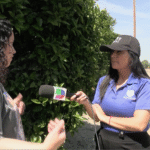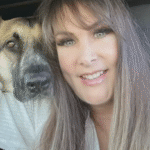USDA’s Failure to Enforce the Animal Welfare Act
The USDA has been extremely negligent over the years in its enforcement of the Animal Welfare Act (AWA) as it pertains to commercial dog breeders and brokers. CAPS has been investigating this problem since 1995. In some instances, we have investigated facilities the day after or before a USDA inspector found no violations. CAPS investigators found numerous non-compliant items. Falsifying an inspection report is a federal felony.
Under the U.S. Criminal Code, it is a federal felony for a government employee to falsify a federal document, such as a USDA inspection report. It is also illegal for government officials to knowingly use fraudulent federal documents, as top-level USDA officials have allegedly been doing, to prepare required annual reports to Congress. Falsification of records, conspiracy to falsify records, and conspiracy to defraud the U.S. government are federal felony crimes punishable by up to five years imprisonment and/or a fine.
USDA officials like to emphasize the word “minimum” with respect to animal care standards. Sadly, USDA is not even enforcing the minimum standards. Because USDA continues to make excuses for its failure to enforce the AWA, congressional oversight hearings are an absolute necessity.
CAPS and its pro bono lobbyists have been meeting with members of congress to present the findings from our investigations of numerous USDA licensed facilities. CAPS is requesting oversight hearings on the USDA’s failure to enforce the AWA, advocating changes to the AWA and recommending new policies regarding the actions of USDA inspectors.
To keep building our case against the USDA and its failure to enforce the AWA, CAPS’ evidentiary findings must stay current. We must demonstrate that this disregard of the AWA is pervasive throughout USDA’s AHPS/Animal Care and not just a question of a few bad inspectors. Thus, it is essential that CAPS continue its in-depth investigations of USDA licensed facilities. Investigations – we also rescue puppy mill dogs as evidence of the cruelties being committed at these facilities – are costly.
Below is a white paper prepared by Crowell & Moring, CAPS’ pro bono lobbyists in Washington DC. It outlines CAPS concerns about the USDA’s failure to enforce the Animal Welfare Act and lists some suggested solutions. We provide this white paper (with attached Poor, Lorton and Wee investigation reports) to congressional aides prior to meeting with them.
The Animal Welfare Act Needs Strengthening and the USDA’s Administration of the Act Must be Overhauled.
As the only national organization dedicated exclusively to protecting companion animals, the Companion Animal Protection Society (CAPS) is committed to ending the abuse and suffering of puppy mill dogs. Since 1995, CAPS has investigated over 100 puppy mills, with our most recent puppy mill investigations having been conducted in Minnesota, Illinois, Missouri, and Iowa. Further, CAPS works closely with the media, and has generated stories with “Dateline,” “20/20,” “Hardcopy,” and magazines such as Life, People, and the Readers’ Digest, as well as television stations in Boston, Chicago, and elsewhere.
Based on our years of investigative experience, CAPS has concluded that although the Animal Welfare Act (AWA) gives the United States Department of Agriculture (USDA) the power to license, inspect and regulate breeders and brokers who deal in dogs for commercial purposes, the USDA’s implementation of AWA has been grievously insufficient – fulfilling neither the letter nor the intent of the AWA.
Sadly, the problems we have identified are not new. In a March 1992 report, the USDA’s independent Office of Inspector General (OIG) found that the USDA’s Animal and Plant Health Inspection Service (APHIS) could not ensure the humane care and treatment of animals as required by the AWA. Indeed, in a subsequent January 1995 report, the OIG, recommended new legislation to strengthen and enhance APHIS’ authority.
CAPS believes strongly that the time has come to fix these problems once and for all, and we urge the Congress to take the actions necessary – including oversight of the USDA’s activities and enactment of remedial legislation – to achieve this goal. A brief summary of our concerns and some suggested solutions are set forth below.
Summary of Concerns
Importantly, although some improvements in the USDA’s regulations are warranted, the larger problem is that the USDA is simply not enforcing them adequately. The USDA’s rules (see generally, 9 CFR Parts 1-4), are too often ignored, not only by those who are regulated, but also by the regulators themselves. Thus, although the USDA’s rules establish fundamental standards intended to provide for the humane care and treatment of dogs and other animals, unfortunately, as CAPS finds repeatedly in our field investigations, the standards for housing, ventilation, lighting, interior surfaces, primary enclosures, sanitation, pest controls, feeding and watering, outside shelter, compatibility, adequate veterinary care, and handling are, in all too many cases, being ignored. Complete copies of our field investigations are available upon request. Simply put either through omission, misfeasance, and (we fear) in some cases, even malfeasance, the USDA is not getting the job done. CAPS urges Congress to act swiftly to remedy the systemic failures we have identified.
Suggested Solutions
We question whether the USDA is even institutionally capable of adequately implementing the puppy mill protection provisions of the AWA. Thus, we believe the appropriate congressional committees should conduct prompt and vigorous oversight of the USDA’s management of this program with the following questions in mind:
- Does APHIS have sufficient funding and personnel to carry out its statutory mission?
- Does APHIS have the requisite management and training structures in place to fulfill its mission?
- Are APHIS inspectors qualified and properly trained to do the job?
In addition, and at a minimum, the Congress should strengthen the AWA to: - require mandatory semiannual unannounced inspections of each licensee’s facility, and mandatory reinspections, within thirty days, of any facilities where violations of USDA’s standards and regulations have been found, to ensure they are corrected in a timely fashion;
- require mandatory unannounced inspections of facilities at which licenses are not renewed by the licensee no later than two months from the expiration date of such license;
- punish through imprisonment or fine (or both) any person who gives advance notice of any unannounced AWA inspection;
- provide a mechanism to allow representatives of animal welfare organizations to file written complaints regarding licensed facilities, including the right of such representatives to accompany APHIS inspectors as they inspect licensees’ facilities in response to such complaints;
- require mandatory suspension of dealer licenses if cited violations of USDA’s standards have not been corrected in a timely fashion;
- require mandatory revocation of dealer licenses if the dealer is found to be in serious violation of AWA regulations or standards (e.g., lack of food or water, adequate veterinary care) during any three mandatory inspections (See S. 1478/H.R. 3058, the Puppy Protection Act of 2001);
- provide for mandatory unannounced inspections of facilities at which licenses are suspended or revoked, within two weeks of such suspension or revocation, to ensure that dogs are not being sold; and
- prohibit the use of gunshot as a form of euthanasia, the conduct of Cesarean sections by anyone other than a licensed veterinarian, and the weaning of animals before six weeks of age.
CAPS believe that prompt and vigorous congressional oversight of the USDA and strengthening of the AWA, as outlined above are essential. CAPS is working to achieve these goals.
Please write the following USDA officials and ask them to enforce the Animal Welfare Act as it pertains to federally licensed dog breeding and brokering facilities and to implement the above solutions suggested by CAPS.
Ms. Cindy J. Smith
Adminstrator
U.S. Department of Agriculture
Animal and Plant Inspection Service
Room 312-E, Whitten Building
1400 Independence Avenue, S.W.
Washington, DC 20250
cindy.j.smith@usda.gov” data-mce-href=”mailto:cindy.j.smith@usda.gov“>cindy.j.smith@usda.gov
Mr. Kevin Shea
Deputy Adminstrator
U.S. Department of Agriculture
Animal and Plant Inspection Service
Room 312-E, Whitten Building
1400 Independence Avenue, S.W.
Washington, DC 20250
kevin.a.shea@usda.gov” data-mce-href=”mailto:kevin.a.shea@usda.gov“>kevin.a.shea@usda.gov
Dr. Chester A. Gipson
Deputy Administrator of Animal Care
U.S. Department of Agriculture
Animal Plant and Inspection Service
USDA-APHIS-AC, Rm. 2D13
4700 River Road, Unit 97
Riverdale, MD 20737
chester.a.gibson@usda.gov” data-mce-href=”mailto:chester.a.gibson@usda.gov“>chester.a.gibson@usda.gov
Mr. Tom Vilsack
Secretary of Agriculture
U.S. Department of Agriculture
1400 Independence Avenue, S.W.
Washington, DC 20250
Ms. Kathleen A. Merrigan
Deputy Secretary of Agriculture
U.S. Department of Agriculture
1400 Independence Avenue, S.W.
Washington, DC 20250
(awaiting congressional approval)
List of USDA licensed breeders and brokers:
www.aphis.usda.gov/ac/publications.html
Look under Facility Lists and then Dealers. “A” dealers are breeders and “B” dealers are brokers. Breeders raise animals for resale to brokers. Brokers then transport and sell these animals directly to pet shops. They may also breed.




